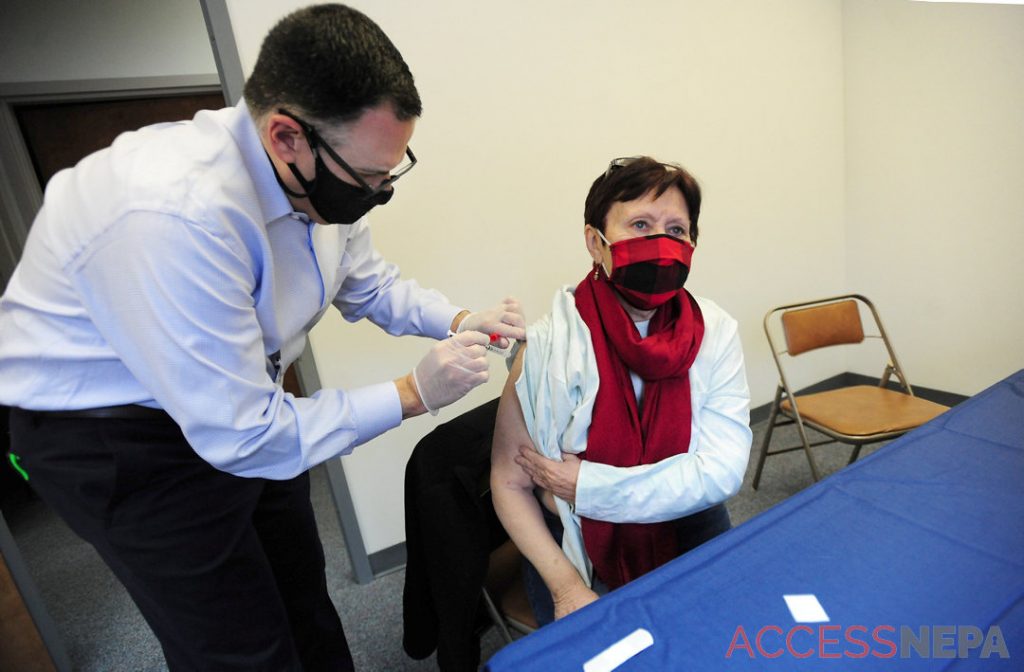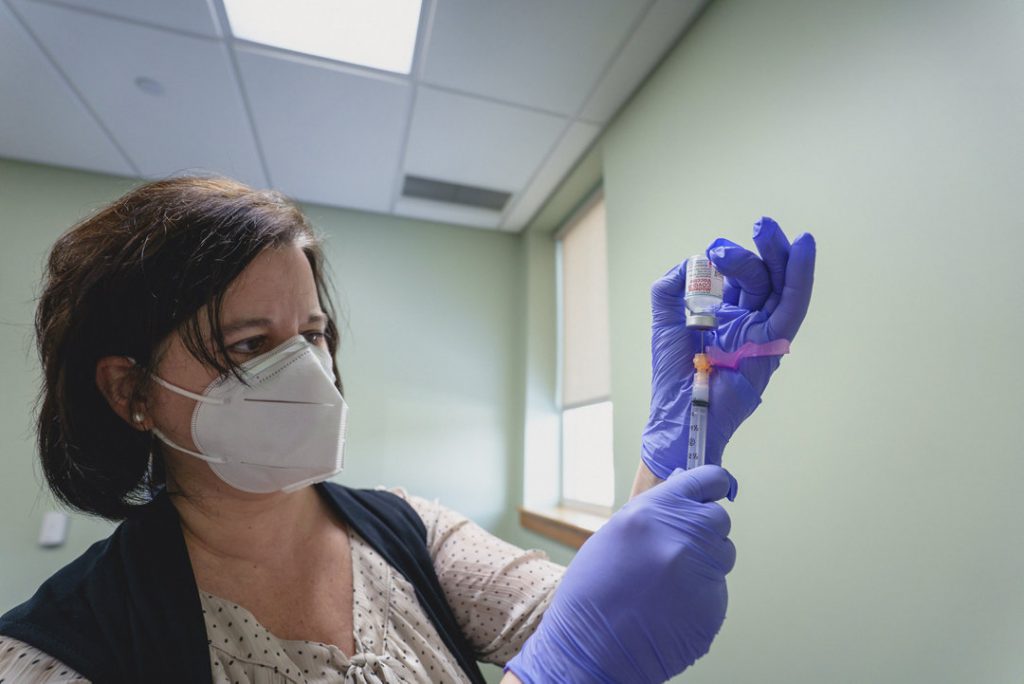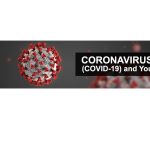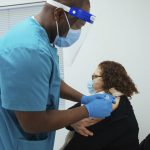Vaccinations against COVID-19 infection almost doubled in the last week as the pace of inoculation picked up after the holidays.
As of Wednesday, more than 300,000 Pennsylvanians had received at least the first dose of either the Pfizer or Moderna vaccine, according to the state Department of Health. Almost all were frontline health care workers, or residents and staff of long-term care centers, including nursing homes, the department’s top priority. In local counties, Carbon has had 2,188 people vaccinated; Luzerne, 10,864; and Schuylkill, 4,632.
The availability of the Pfizer and Moderna COVID-19 vaccines has raised a number of questions and left many wondering when or whether they should get vaccinated.
Here are some answers here:
Q: When can I get vaccinated against COVID-19?
A: A lot depends on vaccine supply, but state Secretary of Health Dr. Rachel Levine has repeatedly said mass vaccination for the general public probably won’t happen until late spring or early summer. Health care workers, first responders, people in nursing homes and other long-term care centers are still up first, though Levine said last week that she expects the next vaccination phase to begin soon.
You can find a full priority list for vaccination along with the state’s vaccination plan at www.health.pa.gov/topics/disease/coronavirus/Pages/Vaccine.aspx.
Q: Is there a waiting list or somewhere the general public can sign up for the vaccine?
A: No, mainly because state health officials have no idea when mass vaccination will happen.
Q: Where will vaccines for the public be available?
A: State officials expect that to happen at a variety of places, including mass inoculations sites whose locations they will announce.
Q: Do I have to get vaccinated?
A: Generally, no, though your employer may require you to get a vaccination. However, health officials urge everyone to get vaccinated because it’s the surest way to slow the virus’ spread.
Q: How many shots do I need?
A: The Pfizer and Moderna vaccines require two shots. The second Pfizer shot comes 21 days later, the Moderna, 28 days. Other vaccines in development may require only one shot.
Q: Is the vaccine dangerous? What are the side effects? Can I get COVID-19 from the vaccine?
No, you can’t get COVID-19 from the vaccine because, unlike other vaccines, live virus is not used in making it. However, the body needs a few weeks to build immunization after a vaccination. Until that happens, a vaccinated person could get infected and get sick, according to the Centers for Disease Prevention and Control.
The vaccine is widely considered safe. The most typical side effects are pain and swelling in the arm where you got the shot, fever, chills, tiredness and aches in the rest of your body, according to the CDC.
Moderna says its vaccine can also produce nausea and vomiting.
Most side effects don’t last more than a day or two.
A few patients among the hundreds of thousands vaccinated have reported allergic reactions. One Florida doctor who advocated vaccination died two weeks after his, but authorities are still investigating if his death is vaccine-related. There have been no widespread reports of deaths or severe symptoms.

MARK MORAN / STAFF PHOTOGRAPHER
Pharmacist Jim Gaudino administers the first dose of the COVID-19 vaccine to Rita Groboski, a health care professional from Luzerne, at Cook’s Pharmacy in Kingston on Jan. 15, 2021.
Q: If I had COVID-19, am I immune from the virus?
A: Maybe, according to the Pennsylvania Department of Health, which also says experts don’t know how long this protection lasts. The department says “the risk of severe illness and death from COVID-19 far outweighs any benefits of natural immunity.” The vaccine protects you “by creating an antibody response without (you) having to experience sickness.”
Q: If I had COVID-19 and recovered, should I still get the vaccine?
A: Yes. The CDC says you should because of the “severe health risks associated with COVID-19” and because reinfection is possible.
Q: How much will a vaccine cost?
A: It shouldn’t cost anything. The Coronavirus Aid, Relief and Economic Security Act passed by Congress last March says any authorized COVID-19 is considered a “preventive health service” so private health insurers must cover their entire cost with no charge to the person receiving the vaccine. Medicaid and Medicare cover vaccinations’ full cost.
Systems can charge a fee for administering the vaccine, but insurers are required to pay for that, too.
For uninsured patients, vaccination providers can seek reimbursement from the federal government.
Q: Will I need a prescription to get vaccinated?
A: No.
Q: Do I have to keep wearing masks and social distancing after getting the vaccine?
A: Wearing masks remains mandatory in public places. Someone who had the vaccine may still get the virus and spread it. The end of wearing masks will happen when enough people get the vaccine, officials say. That may take most of this year.
Q: Should children get vaccinated?
A: Yes, but so far neither the Moderna nor the Pfizer vaccine is approved for children under 16 years old. Pfizer’s is approved for 16 and older, Moderna’s for 18 and older. Both companies say they’re conducting trials with children, who are generally less susceptible to severe COVID-19 symptoms anyway.
Q: I’ve heard COVID-19 mutated and some people came down with the variant. Will the vaccines work against the variant?
A: It’s hard to know for sure because the variant is so new. Pennsylvania had only one reported variant case as of Jan. 11.
Pfizer says its preliminary study shows its vaccine will work against the variant. Moderna is still studying that.
Contact the writer: bkrawczeniuk@timesshamrock.com; 570-348-9147




